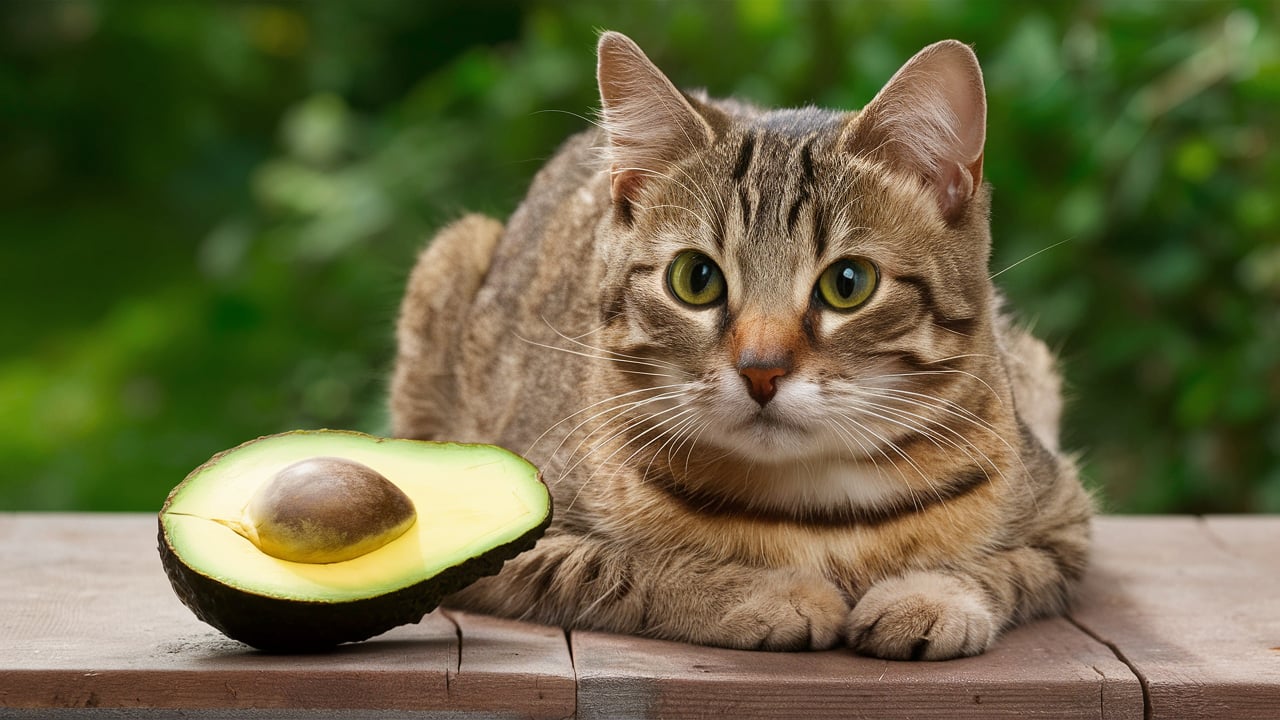Avocados are a delicious and nutritious fruit for humans, but what about our feline friends? Can cats eat avocado? While avocados are packed with healthy fats and nutrients, their safety for cats is a question that often arises among pet owners. Let’s Cat Safety Tips explore the truth about avocados and cats to determine whether this popular fruit is a safe snack for our furry companions.
Can cats eat avocado?
Contrary to popular belief, avocados are not safe for cats. While they offer numerous health benefits for humans, they contain a substance called persin, which is toxic to cats.
The idea that avocados are good for cats is a misconception. The benefits you listed, such as protein, healthy fats, antioxidants, and fiber, are indeed valuable for cats, but they can be obtained from safer sources like high-quality cat food and other appropriate treats.
Always prioritize your cat’s safety and consult with your veterinarian for any questions regarding their diet. There are many delicious and safe treats that your feline friend can enjoy without risking their health.

What are the risks of cats eating avocado?
While avocados are a delicious and nutritious fruit for humans, they pose a significant risk to cats due to the presence of a toxic compound called persin. Here are the key risks associated with cats consuming avocado:
Persin Toxicity
Persin is a fungicidal toxin found in all parts of the avocado, including the flesh, skin, pit, and leaves. While it doesn’t significantly affect humans, it can cause serious health problems in cats, leading to digestive upset, respiratory issues, and even death in severe cases.
Digestive Upset
The high fat content in avocados can cause digestive upset in cats, leading to vomiting, diarrhea, and potentially pancreatitis. This is especially true for cats with pre-existing digestive conditions.
Choking Hazard
The skin, pit, leaves, and stem of the avocado can be a choking hazard for cats, especially since they tend to swallow their food whole. It’s essential to keep all parts of the avocado away from your feline friend.
Pancreatitis
The high fat content in avocados can trigger pancreatitis in cats, a painful inflammation of the pancreas. This condition can be life-threatening and requires immediate veterinary attention.
It’s crucial to remember that even small amounts of avocado can be harmful to cats. To ensure your cat’s safety, it’s best to avoid giving them any part of the avocado. There are many safe and delicious treats that your feline friend can enjoy without risking their health.
Can cats eat avocado oil?
While avocado oil is often touted as a healthy addition to human diets, its safety for cats remains a point of contention. While it’s true that avocado oil contains lower levels of persin compared to the avocado fruit itself, it’s still not recommended for cats due to its high fat content.
Cats are obligate carnivores, meaning their bodies are designed to thrive on meat-based proteins, not high-fat oils. Excessive fat intake can lead to digestive upset, weight gain, and even pancreatitis in cats.
If you’re looking for ways to improve your cat’s coat and skin health, there are safer and more appropriate alternatives, such as fish oil or coconut oil, which are readily available and specifically formulated for feline consumption.
Can a cat eat avocado? Always consult with your veterinarian before introducing any new foods or supplements to your cat’s diet. They can provide personalized advice based on your cat’s individual needs and health history.
How to safety feed avocado to cats?
While it’s generally not recommended to give cats avocado due to its toxicity, if you choose to do so, it’s crucial to proceed with extreme caution. Here are some tips to minimize the risks:
Avoid Avocado Altogether
The safest approach is to avoid giving your cat any part of the avocado, including the flesh. There are many safe and delicious treats that your feline friend can enjoy without risking their health.
If You Must Offer Avocado
If you decide to offer avocado despite the risks, always remove the skin, pit, and leaves, as these contain the highest concentration of persin. Cut the flesh into very small pieces and offer only a tiny amount (no more than a teaspoon) to see how your cat reacts.
Monitor for Reactions
Watch your cat closely for any signs of illness, such as vomiting, diarrhea, lethargy, or difficulty breathing. If you notice any adverse reactions, stop feeding avocado immediately and contact your veterinarian.
Keep Cats Away from Avocado Plants
If you have an outdoor cat and grow avocado trees in your yard, ensure they cannot access the plant. The bark and leaves contain higher concentrations of persin and are particularly dangerous.
Remember, a balanced diet of high-quality cat food is the best way to ensure your feline friend gets all the nutrients they need. Treats should be offered in moderation and with caution.
In conclusion
So, can cats eat avocado? The simple answer is a resounding NO. While avocados are delicious and nutritious for humans, they contain a toxic compound called persin that can be harmful to our feline friends. From digestive upset to potential pancreatitis, the risks outweigh any perceived benefits.

Related Post
Home Remedies For Lethargic Cat: Bring Back The Energy!
Is It Bad For Cats To Eat Dog Food? A Risky Choice
Can Cats Have Bread? The Truth About Feline Diets